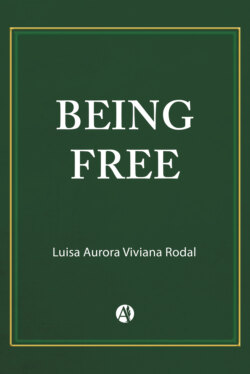Читать книгу Being Free - Luisa Aurora Viviana Rodal - Страница 6
На сайте Литреса книга снята с продажи.
Prologue
ОглавлениеCapitalism is equivalent to profit, not to liberty (and I do not intend to persuade anybody that its opposed may be1. Freedom belongs to the cultural tradition of Occident which interprets humanity as the being which will chooses a destiny.
Different from whim, extravagance, or abuse, freedom springs of justified decisions (through moral, norm, scientific knowledge). Liberty is not born erratically from arbitrariness. It is a cultural good that allows the spontaneity of the person with just conscience. It means a problem that concerned humanity since ever y in all civilizations.
Principally, it has been answered through the mythological religious system, but in Occident it acquires in an especial way a relationship with responsibility and justification (partly because of the notional influence of Jewish Law and partly due to the roman legal culture). Therefore, the idea of justification runs through the contemporary epistemological and sociological contemporary areas proper to the technological society, showing a mentality that surpasses the secularizing phenomenon with its own modality.
Liberty is relative to responsibility, which claims for justification, itself referring to the truth. Ultimately, the ethical theme of freedom drives us to the warrant of free will and, as justification in the legal scope, it drives to the last reality of facts (be them public or belonging to the privacy of the acting I). I mean that the justification that lies to a responsible freedom presents itself in facts (the experience that Hume made the fountain of knowledge). That is to say that the issue of liberty, referring itself to its justification, drives toward the question of truth of a responsible action. This last problem (if freedom is responsible and justified), questions about where are the grounds of the truth of justification. In the form of an inquiry, how may one know about the foundations on which the truth of justification lies?; will one decide favouring the facts and the disposable experience or will the private sphere of each conscience (unattainable through empirical methods)?
Through what I stated, I wish to express that the theme of liberty is not, without more, an issue that ends in itself, but that it is tightly related with the idea of justification. This determines the limit of arbitrariness (from despotism of dictatorships up to the unscrupulous manipulation of the Capitalist profit).
Freedom does not correspond itself with the absence of responsibility, being the ethic the centre from which the no coercion may be grounded. The opposed to liberty is not determinism (which signifies its contradictory) but the blind irrational force in the execution of power.
It is believed that Capitalism is synonym of freedom and that Socialism of people welfare. Noting is more illusory as this extrapolation of problems that are essentially ethical to a economic, sociological or political ideology
